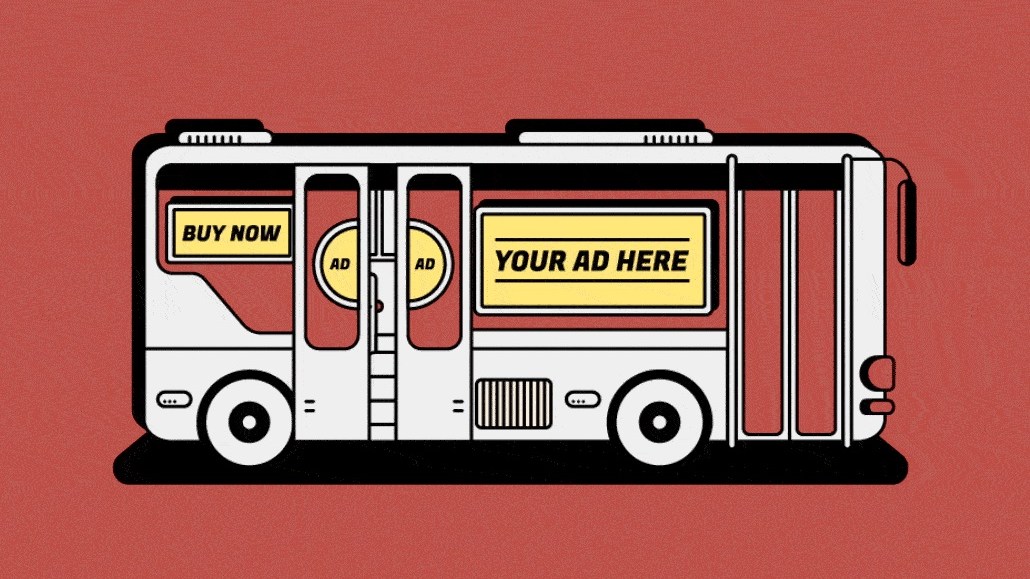Secure your place at the Digiday Media Buying Summit in Nashville, March 2-4
Google debuts first 3D Times Square billboard to catch attention of millennials, Gen Z

Google is leveraging its partnership with Samsung to launch its first 3D ad in New York’s Times Square. The tech giant is looking to appeal to young millennials and Gen Z by showcasing the ad on a 3D billboard.
The digital out-of-home activation debuted on Dec. 11 as part of Google’s ongoing “The Future is Unfolding” campaign with Samsung, which started in 2021. In partnership with Universal Music Group and creative agency Cekai, the billboard illustrates how people get frustrated when they fail at taking photos. It includes a 3D avatar of musical artist Ludacris demonstrating how to take a hands-free selfie using a foldable Samsung Galaxy Z Flip4.
Similar to Google and Samsung’s ’90s nostalgia campaign featuring TikTok personality Addison Rae, the brands are targeting young millennials and Gen Z consumers through their partnership with Ludacris. The new ad spot encourages this target demographic to be creative and use the Samsung phone to capture more of their authentic selves, with the goal of sparking conversation about what people should expect from their smartphones in both physical function and utility.
“While our primary target demographic is Gen Z and younger millennials, we know we’ll reach beyond these groups to consumers who want more out of their most personal devices,” said Adrienne Lofton, Google’s global vice president of platforms and ecosystems marketing.
It is unclear how much of Google’s advertising budget is allocated to this specific campaign, as Lofton declined to share overall budget specifics. According to Kantar data, the company spent a little over $215 million so far on advertising efforts in 2022.
When developing this campaign, Google wanted to find a way to demonstrate voice-enabled, hands-free selfies on the Samsung Galaxy Z Flip4. To do this, the company researched several different media and formats, Lofton said. “One that really stuck out to the team was a high-impact, specially designed 3D anamorphic digital billboard in Times Square,” Lofton added.
Digital displays are going up in more strategic locations across the country, which means marketers have to find the most compelling strategies for these digital OOH campaigns to successfully attract consumer attention. Several brands, such as women’s health care brand Tia, productivity app Notion and baby care brand Coterie, have also contributed to this trend in 2022, making OOH a bigger part of their media mix going forward.
According to Allen Adamson, co-founder of marketing collective Metaforce, Times Square is the world’s most crowded and competitive marketing arena where every ad tries to be as loud as the next.
“First, the breakthrough in large-scale high-definition screens allowed some advertisers to be bigger, brighter, more realistic and bolder than others and Google’s new 3D anamorphic billboard is changing the Times Square outdoor advertising game again,” said Adamson. “3D is more attention-grabbing than HD and in Times Square’s cluttered and competitive environment, the advertisers that get your attention win.”
Brandon Brown, CEO at creator management platform GRIN, agreed that Google and Samsung’s strategy for this campaign is in a good spot for winning attention, with the billboard in one of the most heavily trafficked parts of New York City.
“The new, first-ever 3D anamorphic billboard in Times Square featuring an avatar of Ludacris is a clever stunt and a very strategic way to use advanced technology to keep the marketing use of a popular celebrity evolving,” Brown said.
In addition to the 3D billboard, Google collaborated closely with Samsung and Universal Music Group’s teams to develop an integrated amplification strategy for the new campaign that includes social media behind-the-scenes content about the billboard development posted on Google Android, Samsung and Ludacris’s TikTok, Instagram, Facebook and Twitter accounts. “We wanted to show that Samsung and Google are opening up new content creation opportunities through this functionality,” said Lofton.
More in Marketing

Future of Marketing Briefing: AI’s branding problem is why marketers keep it off the label
The reputational downside is clearer than the branding upside, which makes discretion the safer strategy.

While holdcos build ‘death stars of content,’ indie creative agencies take alternative routes
Indie agencies and the holding company sector were once bound together. The Super Bowl and WPP’s latest remodeling plans show they’re heading in different directions.

How Boll & Branch leverages AI for operational and creative tasks
Boll & Branch first and foremost uses AI to manage workflows across teams.








